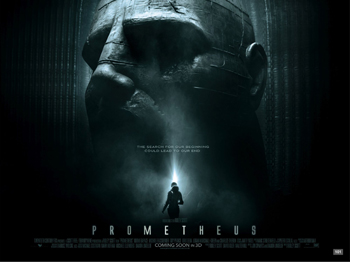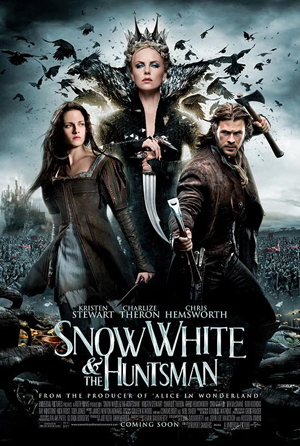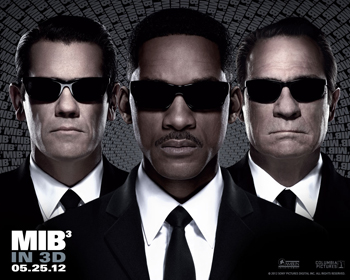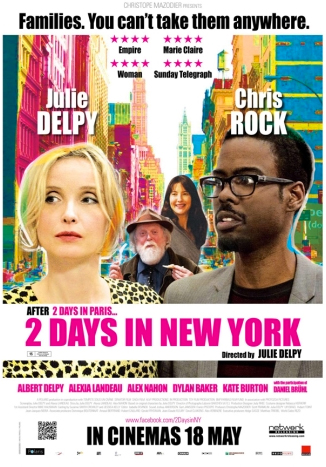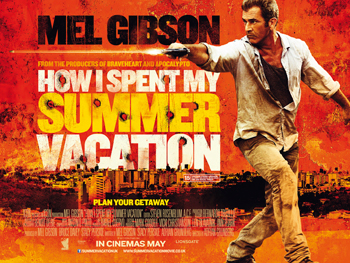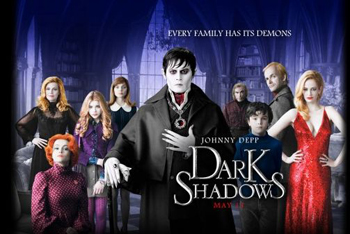iLL Manors ***
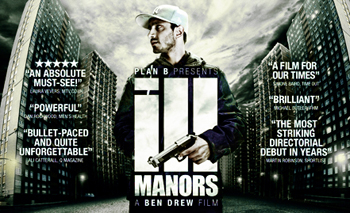 “We are all products of our environment”, is debut writer-director Ben Drew’s (Plan B) chillingly frank poster statement. This is never a truer word said and kind of stating the obvious too. But far from falling into the gangster genre trap of having to suffer one’s lot in life, Drew does try to emphasise that we all have free will – however hard the going gets. This is what makes his film, iLL Manors, set in east London’s Forest Gate area all the more intriguing than the usual youth hardship offering.
“We are all products of our environment”, is debut writer-director Ben Drew’s (Plan B) chillingly frank poster statement. This is never a truer word said and kind of stating the obvious too. But far from falling into the gangster genre trap of having to suffer one’s lot in life, Drew does try to emphasise that we all have free will – however hard the going gets. This is what makes his film, iLL Manors, set in east London’s Forest Gate area all the more intriguing than the usual youth hardship offering.
The story starts out in much the same way as other raw, gritty and unforgiving London-based crime dramas. However, it interweaves the lives of various characters of various ages and various nationalities in a lengthy but purposeful way, along with old Super 8 film of innocence at play that is particularly heart wrenching. At the helm is big-hearted foot soldier, drug dealer Aaron (Riz Ahmed) who is a right-hand man to his hotheaded, long-time mate Ed (Ed Skrein), who he grew up with in a children’s home. Various scenarios play out that lead to one of the pair reassessing his predicament.
Nobody can deny that Drew really knows his topic, his past existence of ‘survival of the fittest’ on London’s tough estates inside out. Illustrating this with catchy music and poignant lyrics, he guides us through this mind field of hard knocks and unseen consequences that, thankfully, the majority of us have not experienced. That said Drew never allows any of his characters to be rendered completely at fault or completely helpless either. Each character is allowed time to pause and reflect before continuing down one path, which gives iLL Manors a more unique vibe than the likes of Noel Clarke’s ‘depressingly hopeless’ Adulthood and Kidulthood or Tinge Krishnan‘s Junkhearts.
Nevertheless, iLL Manors still feels emotionally cumbersome at times, lacking any of the spirit-relieving dry wit of, say, Dexter Fletcher’s Wild Bill that suggests how such a population deals with societal deprivation and being outcast and unheard. In its favour, it does presume how the London Riots sparked off and enflamed as ‘the underdog class’ feels voiceless and powerless in modern-day politics. Drew gives this his full attention within the film, but is also quick to condone such antisocial behaviour through the choices that his characters make. It’s clear that he supports the working echelons of criminal justice power – the police doing their job for once by arresting the violently abusive Russian pimps, for example, set nicely in contrast with a kid being stopped and searched for simply ‘standing on a street corner’.
Perhaps the most tragic element to the whole film that sticks with you and is expertly demonstrated is how a youth gets involved in a gang. A young boy’s disturbing rise from playground bully to gangster killer charts a short, sharp and depressing arc with shocking results. Indeed, Drew rightfully portrays all ages affected in the film, using clever time-shift editing to illustrate important points. The only true victims seem to be the women, but Drew does fall back on clichés and stereotypes here, resorting to the time-old cinematic tactic of punishing the sexually active female.
Ahmed and Skrein form an easy rapport on screen as unlikely ‘brothers in arms’, with Ahmed portraying many intriguing layers to Aaron’s personality. Aaron and Ed’s deep connection is not fully apparent at first through the bickering, but is wisely allowed the space to develop to explain how circumstance may well determine fate, but not all those involved in the gangster lifestyle think the same way either. Drew does spoil his film by employing violent shock tactics and by its eye-rolling fairy-tale ending that is there to give hope. That said it’s also his personal nod to prove that some do escape the grind.
As directorial debuts go, Drew has yet to grow but has wisely chosen a subject matter close to his heart where he can reach out simultaneously with his music and lyrics, like some latter-day poet. His direction is impressive, helped by the film’s snappy editing and changeable scenarios that all link up – some might argue, a little too conveniently. All the characters are flawed in some way but their fighting spirit does radiate true, making them all the more accessible in a love-hate way. Those from tough backgrounds will no doubt relate; those who are not will appreciate Drew’s messages, however unbelievable some of the actions presented – such as those involving a tart in a kebab shop – get. With access to such filmmaking, we can start to begin understanding Broken Britain and that is a productive thing.
3/5 stars
By @FilmGazer



